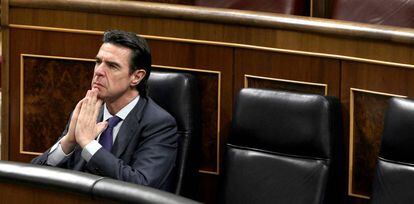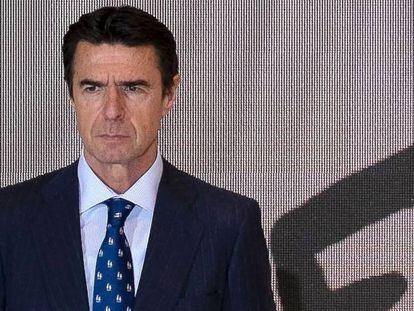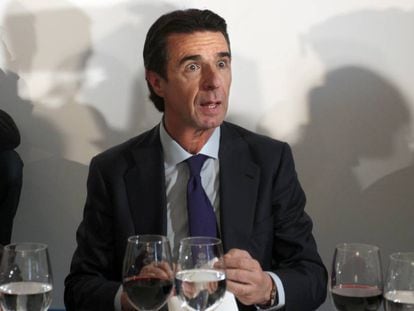Spanish PM forced to make U-turn over World Bank directorship nomination
Criticism within Popular Party prompts former industry minister linked to Panama Papers to withdraw candidacy for key post


Faced with mounting criticism from senior figures within his own Popular Party (PP), Spain’s acting Prime Minister Mariano Rajoy has backed down over the nomination to a World Bank directorship of a former minister linked to the so-called “Panama Papers” scandal.
José Manuel Soria, a former industry minister who resigned in April, sent a letter on Tuesday to the Secretary of State for Economy, Íñigo Fernández de Mesa, saying he was no longer applying for the position on the board of the World Bank. In the letter, he states that his withdrawal is “at the request of the government,” justifying his decision on the grounds of the “disproportionate” political exploitation of his nomination.
Rajoy seems to have been caught off guard by the criticism within his own party over Soria’s nomination
De Mesa, the number two in the Economy Ministry, on Friday headed the commission overseeing Soria’s application for a position on the board of the World Bank, effectively making him Spain’s representative within the multilateral lending institution. The commission announced Soria’s nomination for the post – a formality, given that the World Bank rarely turns down candidates – just hours after Mariano Rajoy had failed for the second time to garner support in Congress to form a government, raising the likelihood of a third general election in a year – potentially on Christmas Day.
The opposition Socialist Party (PSOE) seized the opportunity to accuse the government of favoritism, with senior figures within the ranks of the PP questioning the wisdom of Soria’s nomination in the days that followed. Until now, Rajoy has mostly managed to secure loyalty in public from party officials, despite his inability to break the political impasse that has left the country without a government for more than eight months.
Rajoy initially defended the decision to nominate Soria as Spain’s World Bank representative.
Soria, who has denied any wrongdoing, resigned as minister in April following reports of alleged links to an offshore company on the British island of Jersey so as to limit any damage to Spain’s caretaker government, the conservative Popular Party (PP).
The move was in the run up to the June general election, the second in seven months, which ended as inconclusively as the previous one in December.
Rajoy, a personal friend of Soria, conceded on Monday that the appointment could be potentially embarrassing, but tried to play down the issue.
“I don’t know anything. The only thing I know is that Mr Soria has left politics,” said Rajoy at the G20 summit in China. “He is a civil servant, he returned to those duties and he went through the application process like all civil servants do.”
Until now, Rajoy has secured loyalty, at least in public, from party officials
But the evaluation committee that formalized the nomination is made up of high-ranking officials of the PP government.
Rajoy has since confirmed that Soria had informed him of his intention to apply for the post in June, two months after he was linked to the Panama Papers, a trove of 11.5 million internal documents from a Panama-based law firm that was leaked to the media.
Rajoy seems to have been caught off guard by the criticism within his own party over Soria’s nomination: the heads of three regional governments have questioned the decision, as has Esperanza Aguirre, the former head of the Madrid regional administration and current opposition leader in Madrid City Hall.
Economy Minister Luis de Guindos has said he will appear before Congress in late September or early October to explain Soria’s nomination.
The affair puts further pressure on the PP caretaker government, which has been plagued by a string of corruption scandals that will see several high-profile officials and former officials face trial this autumn.
English version by Nick Lyne.












































